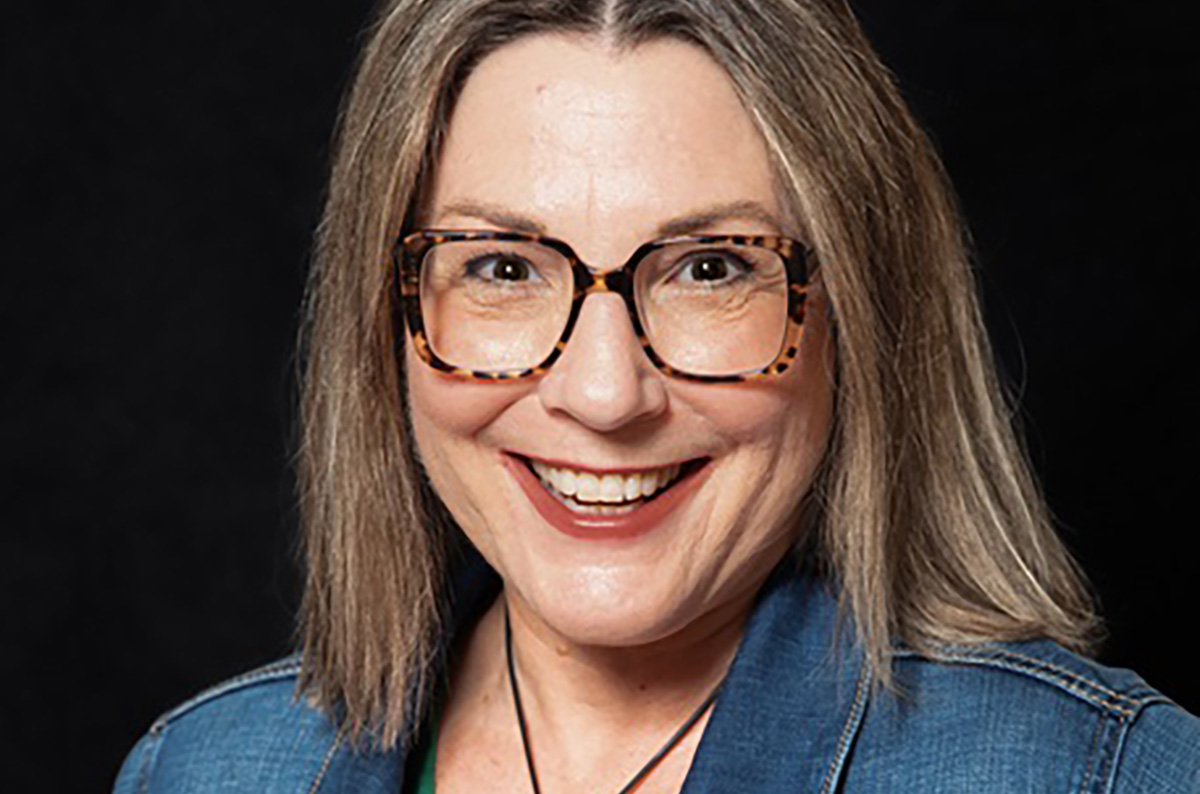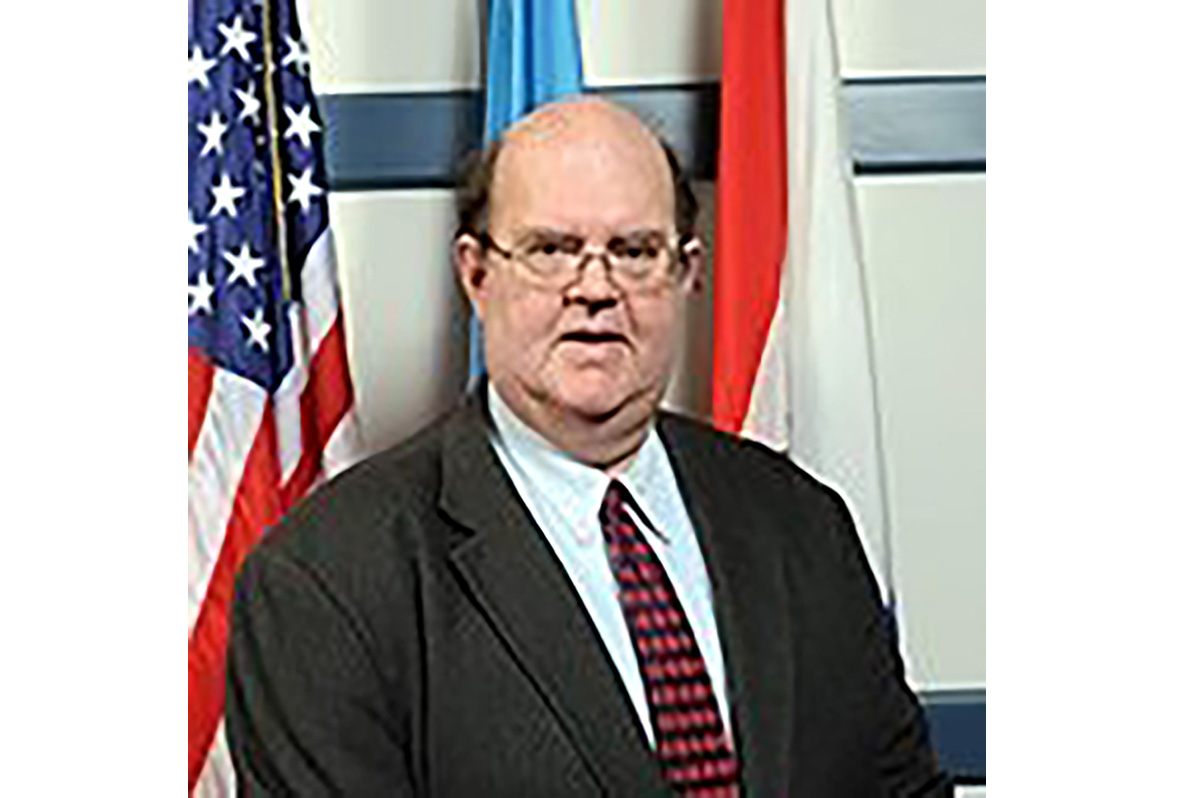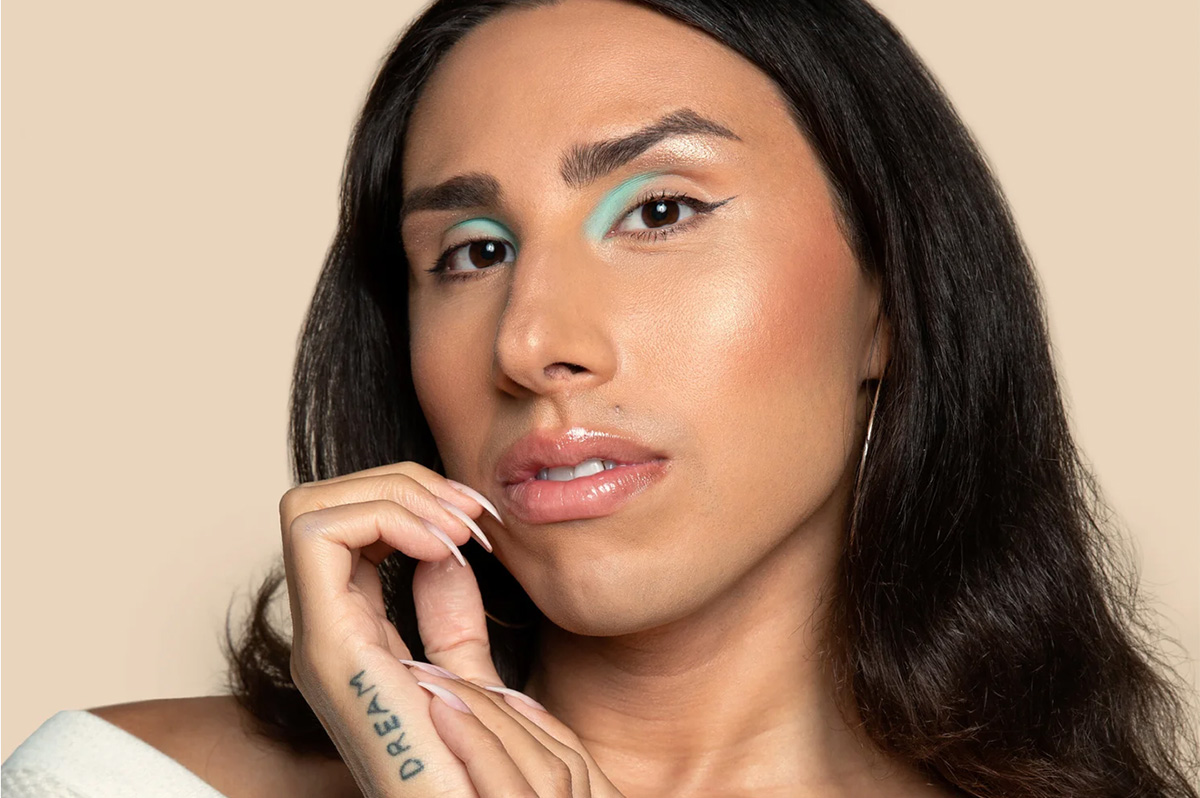Delaware
Snyder-Hall thanks lesbian community after winning in Delaware
14th District state House candidate sees 2024 as ‘femininomenon’

Following a close three-way primary race in Delaware’s 14th District, voters chose Claire Snyder-Hall to face Republican Mike Simpler in November for control of the district’s seat in the Delaware House of Representatives.
Snyder-Hall sat down with the Blade after winning the primary to discuss her plans for the general election, her goals moving forward, and why she dubs this election “the year of the woman.”
“I decided to run because I felt really overwhelmed by all of the negative things that are happening in the world,” Snyder-Hall said when asked about why she decided to get involved in local politics. “While I loved my job as the head of Common Cause Delaware and working on democracy agenda in Delaware, there’s a range of other issues I care deeply about, and I just felt like I have to do something.”
For five years, Snyder-Hall led the Delaware office of Common Cause, a non-partisan organization dedicated to strengthening democracy across the state. Prior to her work at Common Cause, she taught political science at schools across the country for 20 years, including Princeton University, Rutgers University, Hunter College, Illinois State University, New College of Florida, and most recently George Mason University. She explained that because of her experience she stood out against her opponents.
“The challenge when you’re running in a Democratic primary is to differentiate yourself,” Snyder-Hall said. “I have, because of my five years as the head of Common Cause Delaware. I’ve developed a strong network of good relationships on the ground in Dover.”
Those relationships, she argues, will allow her to make the changes at the state level during a time that has been described — to put it lightly — as politically tumultuous.
“This is the most important election of our lifetime. Choice is on the ballot. LGBTQ+ rights are on the ballot. Democracy is on the ballot,” Snyder-Hall said. “And in eastern Sussex [County] our quality of life is on the ballot. And I just felt like I had to do something positive.”
That positive thing, Snyder-Hall explained, involves her three-part plan to protect rights in Delaware.
“There are three really important components of this job, and I take all of them very seriously. One is advocating for your district. Making sure that our district gets the money we need.”
In June, the Delaware House passed its 2025 Operating Budget of $6.1 billion to support critical programs across the state. If Snyder-Hall wins, she wants to see some of that money going to the state’s neediest residents.
“Things like more long-term care options, more mental health services, drug treatment, wraparound services,” she explained are at the top of her list.
In addition to those services, she highlighted the plight of many trans youth. A recent study of anti-trans legislation from The Williams Institute has found that 93% of transgender youth ages 13-17 in the U.S., (an estimated 280,300 transgender youth) live in states that have passed or proposed banning access to gender-affirming care.
“We have a lot of trans people who are moving to Delaware, fleeing persecution in other states. We want to make sure we have the services that are needed to get them up, going, and situated in the community.” Snyder-Hall said. “First thing, bringing resources back.”
“The second thing,” she continued, “is serving constituents. When constituents have a problem they need to have somebody that can call. Unfortunately, a lot of times it takes a phone call to your elected official to get something going.”
“And then the third thing, and this is one that I think sometimes doesn’t get enough attention, is that I want to be at the table when the laws are made for the state,” Snyder-Hall added. “So as a rep, I’m representing my district, but I’m also a participant in the overall governance of the state, and all three of those components are important for the job.”
In addition to the three components of doing the job properly, Snyder-Hall also pointed out she wants to help change the way campaigns are run in the state following Lt. Gov. Bethany Hall-Long’s finance scandal. Last year, the Associated Press discovered Hall-Long failed to disclose hundreds of thousands of dollars in loans in her finance reports.
“Campaign finance reform is a big one, particularly in light of some of the things that have happened recently in Delaware,” Snyder-Hall said. “I’d like to see the creation of an inspector general’s office to look for fraud, waste and abuse, and corruption. It would be a nonpartisan office so it’s not somebody’s political career.”
Snyder-Hall was able to secure the Democratic primary win without the endorsement of longtime incumbent District 14 Rep. Pete Schwartzkopf, who has held the seat since 2002. Schwartzkopf has been a longtime LGBTQ ally, supporting marriage equality, non-discrimination protections, and hate crime legislation in the Delaware House. He also served as Speaker of the House.
Schwartzkopf endorsed Kathy McGuiness, who came in third in the primary with 26.91% of votes (1,238 votes) following Marty Rendon in second with 31.83% of the votes (1,464 votes). Snyder-Hall won with 41.26% of votes (1,898 votes).
Snyder-Hall mentioned that this win would not have been possible without the LGBTQ community in Sussex County.
“I want to say that the lesbian community came out extremely strongly to support our campaign,” she said. “We have a very large community here, not just in Rehoboth and my district, but even spreading out to the west and south. They supported me financially, very generously. They volunteered for me. They spread the word. They lifted me up. I’m so appreciative of their strength in that community. And also, it wasn’t just that. I also have a big network of gay male friends and straight friends.”
Snyder-Hall said that the number of votes she got speaks to her community’s aspirations for a leader.
“One reason I think that the women’s community came out so strongly for me, is because they know that I will represent not just the people that live in my district, but I’ll be representing our interests as women, as lesbians, and as Delawareans,” she added.
She also explained that this could be an indication of a “femininomenon” — to use lesbian pop star Chappell Roan’s made-up word — in government offices across the country.
“We’re going to get Kamala Harris as the first woman president. We’re going to get Sarah McBride and LBR (Lisa Blunt Rochester). LBR will be the first woman senator [from Delaware]. And, you know, hopefully Claire Snyder-Hall from the 14th. I’m very proud to be the first woman nominated to be the representative for District 14, and I’m also the first lesbian nominated to represent District 14.”
Blunt Rochester is poised to become Delaware’s first Black person and first woman Senator. Sarah McBride is slated to be the first transgender person elected to Congress.
“Sarah McBride is incredible. She is a star. She has it all. She has the part you can learn and the part you can’t learn,” Snyder-Hall said. “She’s going to be an incredible congressperson. She’s so young, and she’s going to be the first trans congressperson. She’s got it all. She’s super smart, charismatic, just good with people, good with communications. I think it’s really fantastic.”
She added that she was not surprised by this, which is one of the reasons she loves her state.
“Delaware is a very, very pro-LGBTQ+ state, and I think that it’s not a surprise that our first trans congressperson would come from Delaware.”
Delaware’s general election is set for Tuesday, Nov. 5. Voters will determine the race for the District 14 seat, the open congressional seat, and the Senate seat. This pivotal day will shape the state’s representation at both the state and national levels. For Snyder-Hall, this fight means more than just the office, but progress for Delawareans. “I knocked on thousands of doors all over the district. And the thing is it’s not one person’s story, but just the connection, being able to look someone in the eye and talk about the district and what we can do to make things better, that’s the thing that keeps me going,” Snyder-Hall said. “Knowing that I can help people.”
Delaware
Delaware’s first openly gay elected official dies at 66
John Brady remembered as dedicated public servant

John Brady, the first openly gay elected official in Delaware, passed away in his home on Aug. 10 at age 66 after battling a long illness.
Brady was a deputy attorney general and was elected to three Sussex County offices: register in chancery, recorder of deeds, and clerk of the peace.
While clerk of the peace, Brady performed the first legal same-sex marriages in the state starting in July 2013. He told a local radio station just last week that he performed more than 400 marriages in his four-year term.
“John married my husband and me on the beach in Rehoboth 11 years ago,” said Washington Blade editor Kevin Naff. “He took great time and care in crafting our nuptials. It was a beautiful moment we will never forget. John was a pioneer for the LGBTQ community in Delaware, a dedicated public servant, and a gentleman. He will be missed.”
The day before he passed away on Aug. 9, former Speaker of the House Pete Schwartzkopf and former Lt. Gov. Bethany Hall-Long presented Brady with Delaware’s highest civilian honor for individuals who meet a high standard for community service, the Order of the First State.
Brady retired in 2024 after 32 years as a member of the Delaware Bar and 16 as a state employee. He was also active in the Eagle Scouts, working as a Scout leader and professional scouter. He received the Founder’s Award in 2023, one of the highest honors.
“Delaware mourns the passing of John Brady, a true public servant, trailblazer, and dear friend to many,” Gov. Matt Meyer wrote in a statement on Aug 11. “From his dedication to justice and service through the law to the barriers he broke as Delaware’s first openly gay elected official, John fought with compassion to improve our state and touched countless lives in the process. Lauren’s and my prayers are with John’s family and friends, as we all mourn his passing and celebrate his extraordinary life.”
Delaware
Del. att’y gen’l among plaintiffs suing Trump over access to care for trans youth
Coalition of states filed motion last week

A coalition of more than a dozen states, including Delaware, filed a lawsuit on Aug. 1 to block the Trump administration’s efforts to restrict access to medically necessary care for transgender youth.
Filed in federal court in Massachusetts, the lawsuit challenges Executive Order 14187 from January, in which President Donald Trump refers to gender-affirming care such as puberty blockers, hormone therapy, and surgeries as “mutilation.” It declares that the policy of the United States will be to “not fund, sponsor, promote, assist, or support the so-called ‘transition’ of a child from one sex to another, and it will rigorously enforce all laws that prohibit or limit these destructive and life-altering procedures.”
The suit argues that the EO violates the Administrative Procedure Act (APA) and the Tenth Amendment by asserting federal overreach into state-regulated medical and healthcare decisions.
“It becomes clearer every day that there simply is no bottom to this administration’s cruelty,” said Attorney General Kathy Jennings in a press release. “With his agenda failing and his popularity plummeting, the president is turning to time-tested tactics of demagogues: turning vulnerable people into scapegoats, obsessing over their private lives, and intruding on medical decisions. These stunts make kids into political props and do nothing to help Americans. They are despicable, dangerous, and illegal.”
Gov. Matt Meyer recently signed an executive order making Delaware a shield state for providers of gender-affirming care. It prohibits state agencies from cooperating with investigations, subpoenas, or legal actions by other states against individuals or providers involved in care that is legal in Delaware.
According to the press release, providers in some states have begun to reduce or eliminate services due to federal actions. Nemours Children’s Hospital in Delaware is no longer providing gender-affirming care to new patients.
Medical experts and nearly every major national medical association endorses and supports the availability of gender-affirming care for transgender young people.
“Empirical evidence has demonstrated that trans and nonbinary gender identities are normal variations of human identity and expression,” the American Medical Association said in 2021.
Plaintiffs include the attorneys general of California, Connecticut, D.C., Hawaii, Illinois, Maine, Massachusetts, Maryland, Michigan, Nevada, New Jersey, New Mexico, New York, Rhode Island, and Wisconsin, and the governor of Pennsylvania.
Delaware
Intersex actor, advocate River Gallo attending screening event in Delaware
Afternoon includes screening of ‘Every Body’ and Q&A

Intersex actor and advocate River Gallo will attend a screening of their film “Every Body,” followed by a Q&A in Wilmington, Del. this Saturday.
River Gallo is a Salvadoran-American filmmaker, actor, writer, model, and intersex rights activist from New Jersey. They wrote, directed and starred in the 2024 film “Ponyboi,” the first film to feature an openly intersex actor playing an intersex person. Intersex refers to individuals who are born with reproductive or sexual anatomy that doesn’t fit the typical definitions of male or female.
The movie that will be shown at Theatre N in Wilmington on July 26 at 4 p.m., “Every Body,” documents the lives of three intersex people, including Gallo. Following the film, Gallo will engage in a Q&A to discuss their life as the child of immigrant parents, activism, and film career. The event is hosted by Orgullo Delaware and the Delaware Sexuality and Gender Collective. ACLU Delaware and InterAct are partners in the event.
Noah Duckett co-founded Orgullo Delaware in 2019 with his mom, Julissa Coriano, to provide resources for Latino LGBTQ Delawareans and their families.
Duckett said that a lot of times, intersex people are left out of conversations surrounding the LGBTQ community. He hopes to pack the house for this event and emphasize how special it is that Gallo will be there in-person to connect with the audience about their work.
“I’m really hoping that people will be able to gain more of an understanding of what it must be like to navigate the world as an intersex person,” he said.
Mike Brickner, executive director of the ACLU of Delaware, seconded that the intersex community typically does not get as much spotlight within the LGBTQ umbrella.
“I hope that there are members of the intersex community that do come, that they also feel seen and acknowledged,” he said. “There’s often so few spaces for people to talk about that community and to really share about their experiences, so I do hope that visibility brings some level of comfort to folks.”
InterAct is an organization dedicated to the rights of intersex youth. It was initially founded with the goal of bringing legal action against the practice of non-consensual surgeries on intersex infants, according to Maddie Moran, the director of communications.
Moran said intersex people have historically been victimized and targeted by the government, by medical institutions, and by legal institutions. They said the average politician can’t even define intersex.
“Many of the average people in society don’t know that intersex people exist, and don’t understand that sex is not as strict as an XX and XY binary. It’s so much more than that,” they said.
Moran said they came out publicly as intersex before working with InterAct, but suddenly didn’t feel so alone after joining. They said that visibility is more critical now than ever and Gallo is just one of the people stepping up to be that visibility in the intersex movement.
“To intersex young people out there, you’re really not alone,” Moran said. “There are so many people who share your experiences, who share similar stories to yours, and regardless of what you’ve been told, there are many, many people out there like you.”
Brickner has come to the conclusion that the only way to get through the country’s current moment is through real and authentic solidarity.
“We have to acknowledge other people’s identities,” he said. “We have to have events like this that acculturate people to those identities, and that’s how we really create understanding and true, authentic solidarity with our broader community, is if people understand one another and see their lived experiences.”




















